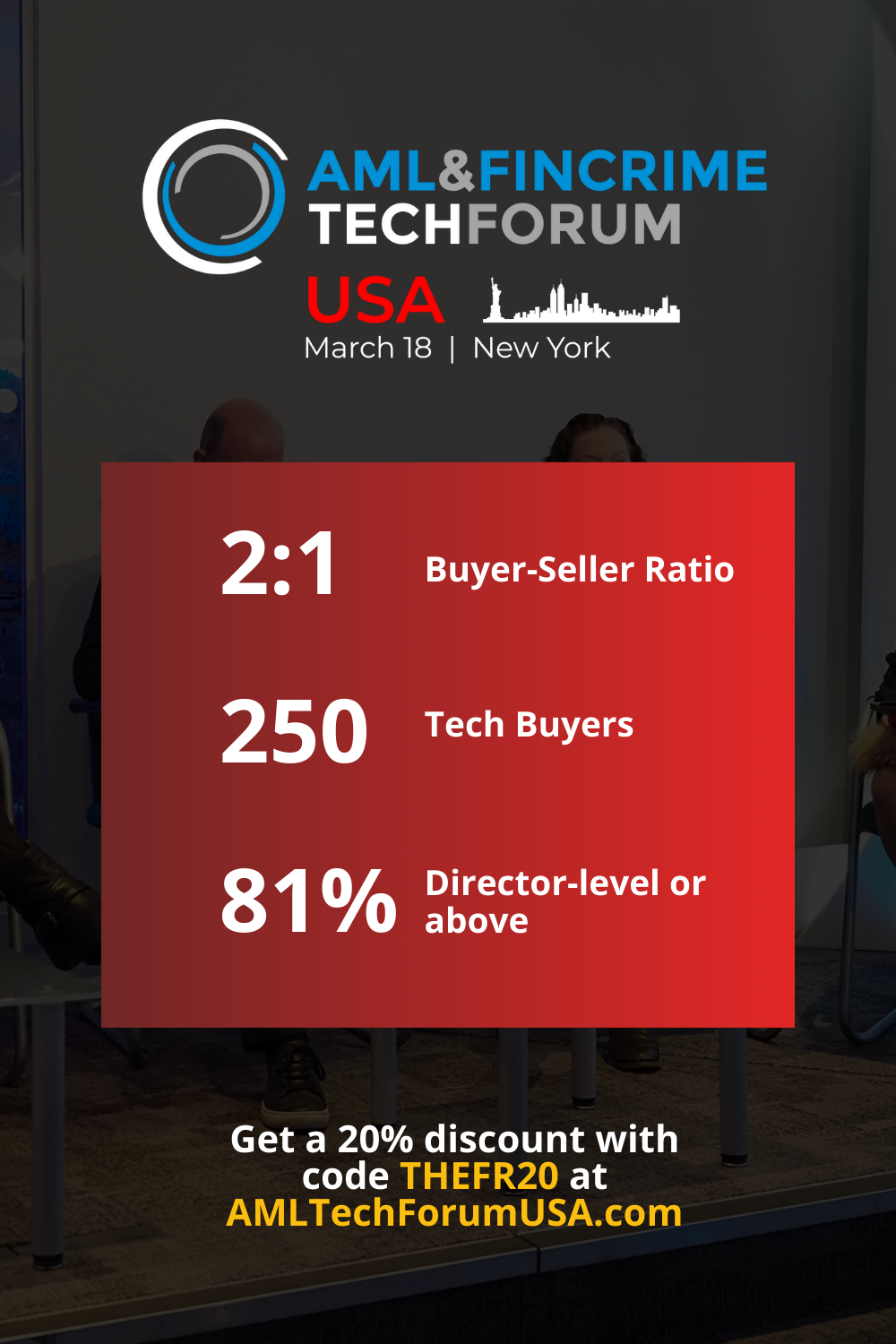Bringing a global lens to fintech investing
/Investor, author, and FR contributor Alex Lazarow recently launched Fluent Ventures, a global early-stage venture firm. Backed by more than 75 unicorn founders, tech leaders and venture capitalists, the firm is managing a $40 million investment program that combines fund capital and co-investments. Fluent Ventures focuses on supporting founders who are scaling proven business models in fintech, health, and e-commerce, says Lazarow.
The FR editors sat down with him to learn more about the firm’s investment approach.
1. You argue that innovation no longer lives only in Silicon Valley. With Fluent, how are you putting that belief into practice, and what does it mean to back “geographic alpha”?
Over the last decade, we’ve seen an explosion of innovation beyond the traditional hubs. In 2013, only four ecosystems had produced a unicorn; today, it’s more than 150. The big idea behind Fluent is simple: the best ideas can come from anywhere—and scale everywhere.
Fluent’s strategy is built around what we call geographic alpha — the insight that exceptional teams executing proven models in new markets can outperform those in saturated environments.
We focus on fintech, digital health, and commerce infrastructure, where these dynamics are especially powerful. In many of these markets, competition is lower, customer acquisition is more efficient, and the need is often more acute — giving founders a real edge.
2. You note that Fluent is leaning into proven models in emerging markets. How do you draw the line between smart adaptation or just applying a Western blueprint to new geographies?
There’s a big difference between copy-pasting and inspired adaptation. We look for founders who deeply understand their markets — local entrepreneurs, or global thinkers with a local mindset — who are reimagining global models with nuance. A fintech playbook that works in the U.S., for example, might require embedded compliance, in-person onboarding, or cash-based rails in parts of Africa or Latin America. Our best founders aren’t cloning — they’re translating, improving, and building resiliently.
Innovation isn’t a one-way street from the U.S. — it flows both ways. I call this the Innovation Supply Chain. Global breakthroughs increasingly inspire domestic reinvention. I was an early investor in Chime at a previous firm, but the first breakout neobank wasn’t American — it was Tinkoff in Russia. That model evolved in Europe and Latin America before it took off in the U.S. Often, ideas tried by global replicators make their way back the other direction. That’s why, at Fluent, about a third of the fund is focused on the U.S., where we’re actively backing globally inspired ideas that are just beginning to find traction domestically.
3. What types of fintech business models do you see as most promising right now in the geographies in which you operate?
Everyone talks about the “silver tsunami” referring to the generation of baby boomers that are heading to retirement. For most investors, this means looking for new healthcare or retirement to serve them better. At Fluent, we believe the most overlooked — and promising — areas in fintech right now is the generational transfer of small business ownership.
Across the U.S. and globally, millions of baby boomer-owned SMBs may lack a succession plan. That represents trillions in business value at stake — and a massive opportunity for innovation.
We’re seeing three models emerge at the forefront, each with strong geographic alpha:
Next-gen SMB brokerages that use AI and automation to help match sellers and buyers more efficiently, particularly in the long tail of smaller businesses. Japan’s M&A Research Institute is a standout example globally. Inspired by that model, we backed Iconic in the U.S., which brings similar tech-driven efficiency and transparency to American SMB transitions.
Marketplace platforms that surface high-quality small businesses for sale — think of them as the Zillow or Redfin for SMBs. These platforms combine discovery, valuation tools and transaction support. We’re excited about players like Baton, which is building the leading SMB sales marketplace in the U.S. We think this model will translate internationally as well.
Employee ownership platforms and roll-ups, like Teamshares, are redefining how employees can take over and continue a company’s legacy. These models combine structured transitions, professional leadership, and equity participation — turning employees into long-term stewards of the business. We’re actively exploring verticalized and international variants of this model.
What excites us most is that many of these innovations weren’t born in Silicon Valley. They emerged from Japan, Europe and other markets grappling with the same demographic shifts. Fluent is bringing those models to new geographies — including back to the U.S. — and supporting founders who are rethinking how business continuity, ownership, and financial services intersect in this new era.
4. You’re backed by an unusually global LP base, including founders from Nubank (BR), Kueski (MX) and Kredivo (ID). How are you using that network to support portfolio companies beyond capital?
We think of capital as the start, not the end. The Fluent community includes 75+ unicorn founders, leading operators, and VCs across six continents. Many are also co-investors in our deals, and that’s by design.
We actively connect our companies to go-to-market partners, potential investors, cross-border acquirers and experienced operators who have scaled similar models in different contexts. It’s a way to de-risk growth and accelerate learning. When a founder in Indonesia is building a credit platform, being able to learn directly from the playbook of someone who did it in Mexico or Nigeria is invaluable.
5. What are some early signals or patterns you’ve seen in LatAm, Africa, or Asia that you think U.S. investors are still missing or perhaps not paying enough attention to?
One is that category leaders are emerging much earlier, especially in regulated or operationally complex spaces. It is becoming much harder, and in Latin America, we’ve seen a wave of companies like Kueski and Nubank that start with a narrow wedge — say, BNPL or credit card lending — but evolve quickly into full-stack financial platforms. This is a powerful way to grow the TAM, strengthen relationships with customers and build massive companies.
Another is capital efficiency. Founders in many emerging markets often don’t have the luxury of abundant capital. They’re forced to build real businesses from day one — with unit economics that work, lean operations and a strong culture of financial discipline. These are what I’ve called Camel startups: resilient, durable, and able to thrive in harsh environments. This is only accelerating in the age of AI with seed-strapping. The next generation of global winners, particularly outside Silicon Valley, will not be the ones who burned the most to grow fast, but the ones who scaled wisely from the start.
6. Fluent’s model combines fund and co-investment, and you’ve hinted at occasional incubation. What does that flexibility allow you to do that a traditional venture model might not?
Traditional venture firms often have a fixed playbook. We built Fluent to be more flexible.
The core fund lets us co-lead, or be a round participant, and partner alongside exceptional local VCs. Our co-investment program lets our LP community double down alongside the fund and on breakouts. Occasionally, when we spot a market gap that aligns with our thesis, we’ll incubate a business ourselves — always with local founders from our ecosystem.
We are hyper-focused on a narrow set of business models. This focus then lets us open the aperture on how we work with founders. For example, while most of the time we look like a traditional VC fund, we occasionally partner with founders to launch their next business via incubation as well.
7. In launching this fund, what are the key risks you foresee, and how are you addressing them?
In some dimensions we’re deliberately taking more risk. Operating across geographies means navigating currency volatility, political shifts and macroeconomic cycles that are often less predictable than in traditional VC hubs.
But when it comes to the core risks that matter most in early-stage venture — founder risk, product-market fit, and scaling fit — we believe Fluent is actually taking less risk, not more.
We focus on proven business models — ones that have worked elsewhere — adapted for local markets. That dramatically reduces the uncertainty around product-market fit. And because these models are being deployed in large, underserved markets with improving digital infrastructure, we often have strong conviction that the TAM is real and the go-to-market channels are deep enough to scale. And of course, the necessary starting point is partnering with exceptional founders with deep domain expertise who are committed to solving their chosen problem
In that sense, we’re not backing science experiments. We’re backing execution — teams building ambitious companies using blueprints that already work.
And finally, in today’s political and regulatory climate, we believe geographic diversification is becoming a strategic advantage. Fluent’s global footprint isn’t just about opportunity; it’s also a hedge against concentrated systemic risk.









